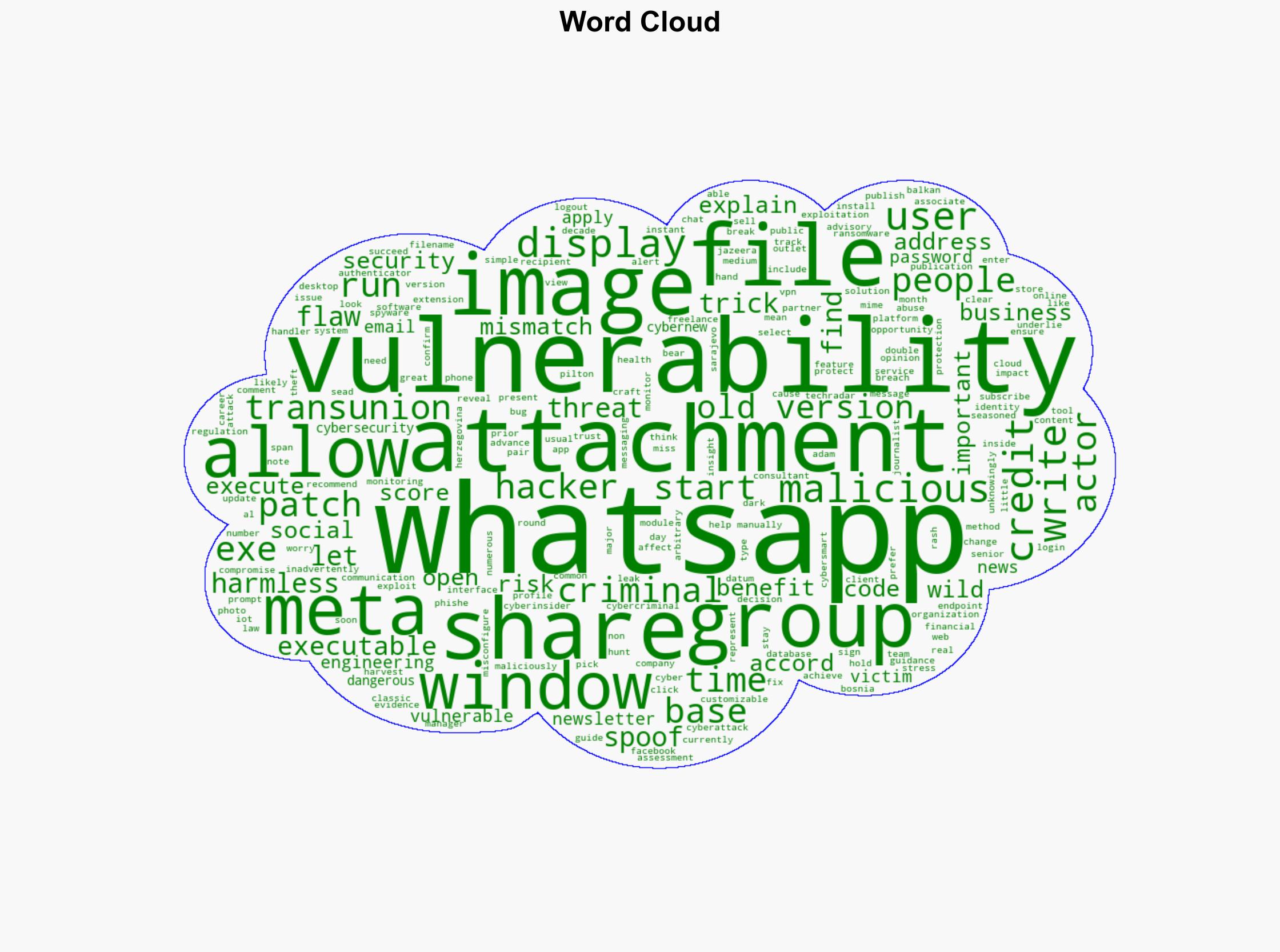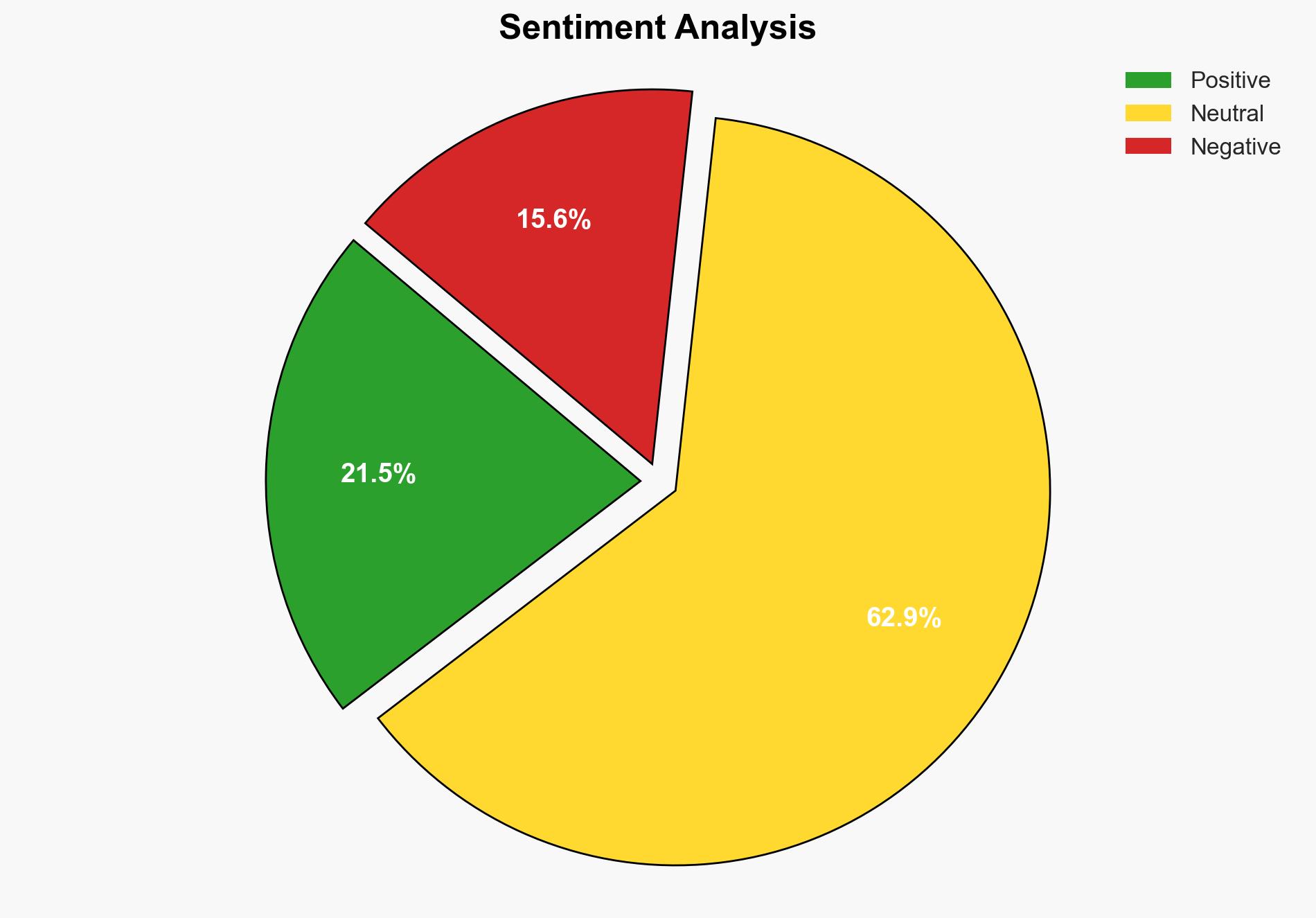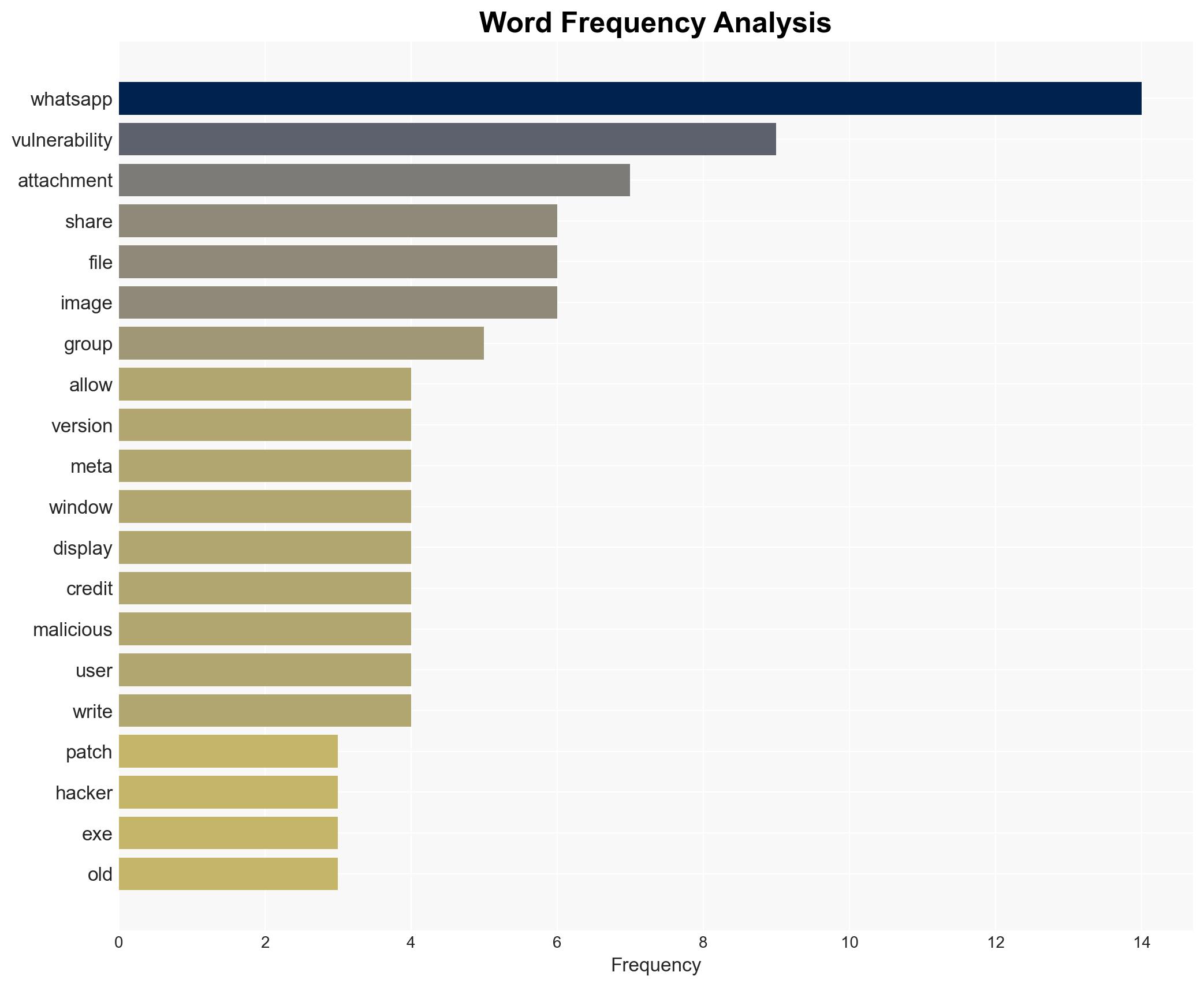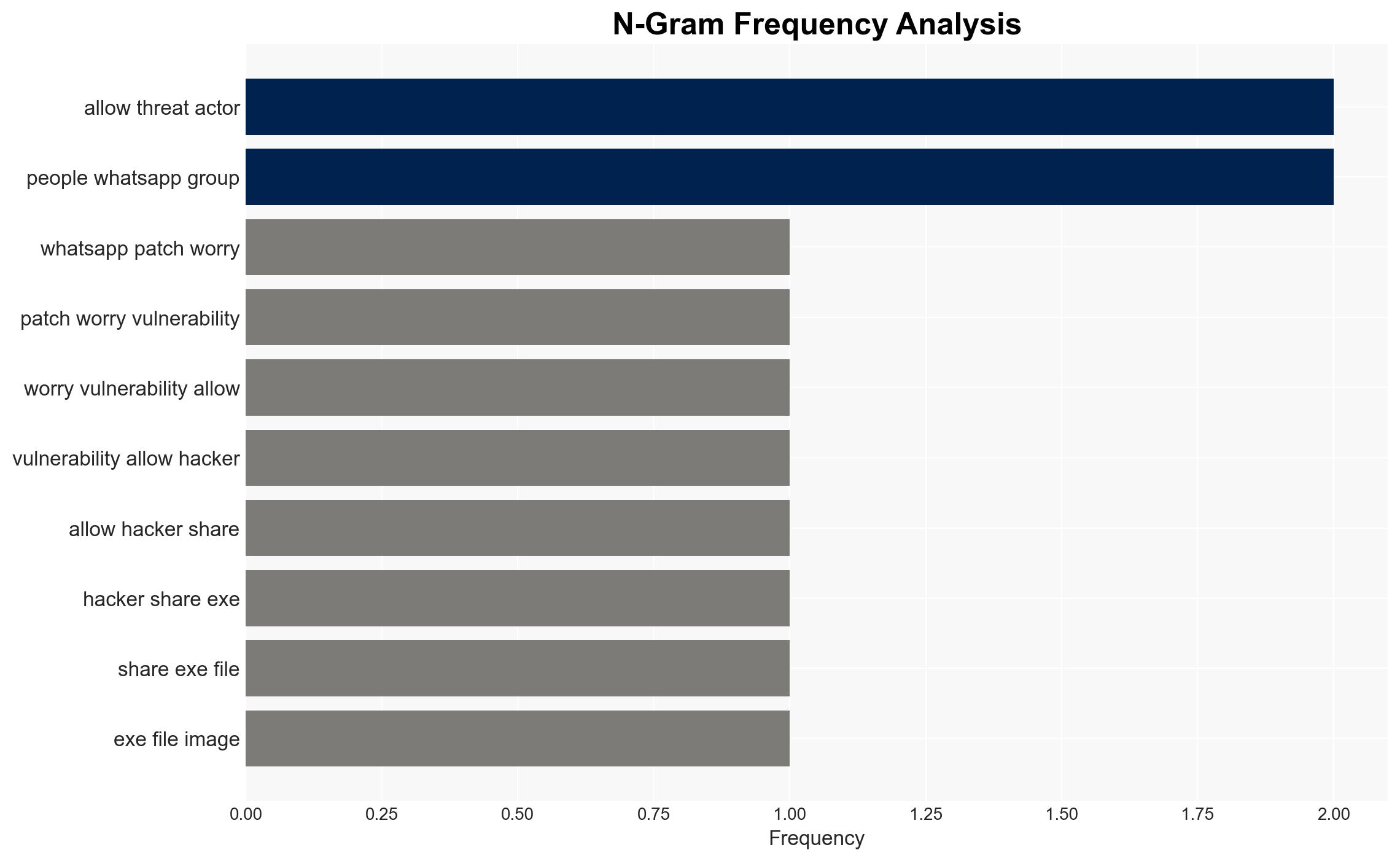WhatsApp vulnerability that allowed hackers to share exe files as images patched – TechRadar
Published on: 2025-04-08
Intelligence Report: WhatsApp vulnerability that allowed hackers to share exe files as images patched – TechRadar
1. BLUF (Bottom Line Up Front)
A critical vulnerability in older versions of WhatsApp for Windows allowed hackers to disguise executable files as images, potentially leading to unauthorized code execution. This flaw has been patched by Meta, but the risk of exploitation remains for unpatched systems. Immediate application of the update is recommended to prevent potential security breaches.
2. Detailed Analysis
The following structured analytic techniques have been applied for this analysis:
General Analysis
The vulnerability was identified in older versions of WhatsApp for Windows, where hackers could exploit a flaw to make executable files appear as harmless images. This method relied on social engineering tactics to trick users into executing malicious code. The flaw was addressed by Meta, but the threat persists for users who have not yet updated their software. The vulnerability underscores the importance of timely software updates and the risks associated with social engineering attacks.
3. Implications and Strategic Risks
The vulnerability poses significant risks to individual users and organizations, particularly those who rely heavily on WhatsApp for communication. The potential for unauthorized code execution could lead to data breaches, financial loss, and compromised systems. National security could be at risk if sensitive information is accessed or manipulated. The incident highlights the need for robust cybersecurity measures and awareness of social engineering tactics.
4. Recommendations and Outlook
Recommendations:
- Ensure all users apply the latest WhatsApp update to mitigate the vulnerability.
- Enhance user awareness and training on recognizing social engineering tactics.
- Implement stricter security protocols for file handling and execution.
- Encourage organizations to conduct regular security audits and vulnerability assessments.
Outlook:
Best-case scenario: All users promptly update their software, significantly reducing the risk of exploitation.
Worst-case scenario: A significant number of users remain unpatched, leading to widespread exploitation and potential data breaches.
Most likely scenario: A gradual reduction in risk as awareness increases and updates are applied over time.
5. Key Individuals and Entities
The report mentions Adam Pilton and Sead, as well as organizations such as Meta and TransUnion. These individuals and entities are significant in the context of cybersecurity and the response to the identified vulnerability.




